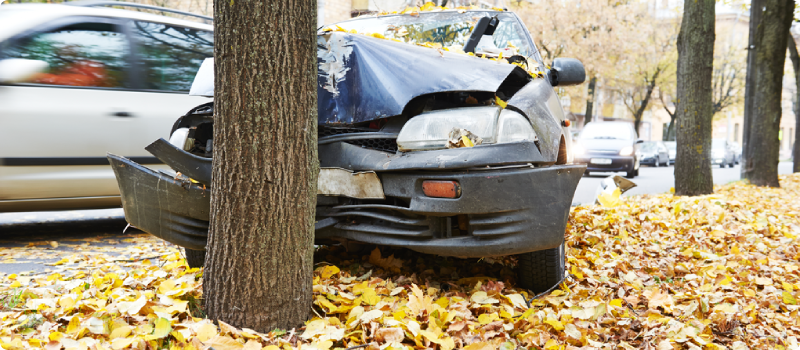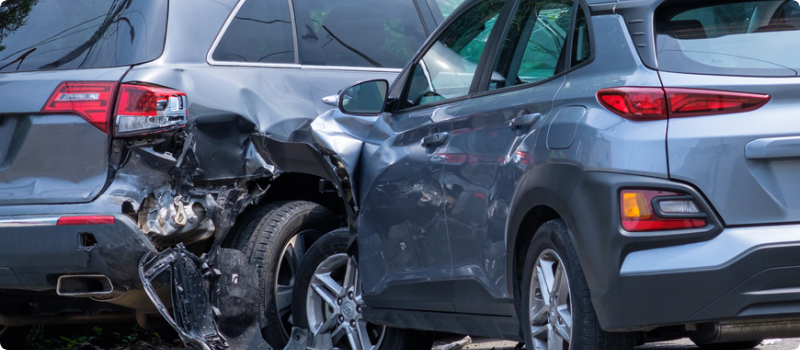Auto insurance definitions & terms
Updated March 3, 2024 . AmFam Team
Understanding your auto insurance doesn’t have to be difficult. Increase your knowledge and better understand your coverages by browsing our glossary of auto insurance terms. Still have questions? Your American Family agent is the perfect person to ask!

A
Accidental Death and Dismemberment Coverage: Insurance coverage that pays a certain sum — up to policy limits — for accidental death and specific injuries. This coverage applies while traveling in a car or being struck by a car.
Actual cash value (ACV): The actual value of your vehicle, based on its current cost to replace it minus depreciation.
Adjuster: The person who investigates and settles insurance claims.
Agent: A person who sells insurance on behalf of an insurance company.
Application: The form you fill out with information about you. An insurance company will use this to decide if they should issue a policy and how much your rate will be.
At-Fault Accident: Any accident, regardless of size or amount paid, in which the driver was wholly or partially at fault.
Auto Accident: An event with your car that was not predicted and not expected to happen. Typically includes property damage and/or bodily harm.

B
Binder: When a temporary insurance contract is put in place in order to provide proof of coverage until you receive your permanent policy.
Bodily Injury: Injury, sickness, disease or death that results from an auto accident.
Bodily Injury Liability Coverage: Protects your assets if you are responsible for an accident where other people are injured or killed.

C
Cancel: To terminate a contract or a policy.
Casualty Insurance: Insurance to cover bodily injury or damage to the property of others.
Chargeable Incident: A chargeable incident can either involve an accident or a violation. It is an insurance-reported incident where you are either at fault for an accident, ticketed or summoned to court. Usually, when you’re deemed 50% or more at fault for an accident and the claim is over a certain dollar amount, your insurance company will consider the accident ‘chargeable’.
Claim: The amount of money a person(s) believes he or she should be paid by an insurance company as a result of an accident. Can be for property damage, bodily injury or both.
Claimant: A person who makes an insurance claim.
Collision Coverage: Pays to repair or replace your vehicle if you hit something else and no one else is at fault. Does not include collision with animals.
Comprehensive Coverage: Provides financial protection for damage caused by a number of causes other than an auto accident, including vandalism, fire, theft, flood, falling tree limbs, hail and collision with animals.
Consideration: The exchange of acts or promises needed for a contract to be valid. For example, an insurance company agrees to provide coverage in exchange for payment of the premium.
Contract: An insurance policy is considered a “contract” between the insurance company and the policyholder.
Coverage: The insurance protection in a policy.
Credit-Based Insurance Score: A credit-based insurance score provides an assessment of your insurance risk at a particular point in time. Only credit-related information is used in determining a credit-based insurance score.

D
Declarations Page (Dec): Forms part of the policy and contains information such as when, where and to whom the policy applies. The declarations page will also have a policy number, named insured, mailing address, effective dates, agent's name, listing of insured vehicle, lien holders (if any), rating information, endorsements and premium charges.
Deductible: The amount of the loss the insured agrees to pay before the insurance company pays – up to the policy limits – if one applies.
Depreciation: The loss in value of property due to wear and tear, age or becoming obsolete.
Direct Loss: Damage or loss caused directly by a particular peril.
Disability: When a person cannot continue his or her normal occupation due to bodily injury.
Dismemberment: Loss of (or loss of the use of) certain body parts, such as an arm or leg, resulting from accidental bodily injury.

E
Effective Date: The starting date of the insurance policy.
Emergency roadside assistance: Helps pay for services and support, such as towing, battery jump, tire servicing, delivering gas and oil, unlocking your car and even roadside repairs. Find out more about American Family Insurance Emergency Roadside Assistance.
Endorsement: An add-on coverage to your car insurance policy that provides additional benefits or exclusions. An endorsement may require additional premium. Also known as a rider.

F
Family Car Policy: An automobile policy including one or more of the following coverages: liability, medical expense, physical damage and uninsured motorist. Coverage is only for individually owned private passenger cars and trucks.
Full coverage: Though there is no such thing as “full coverage,” it is a common term used to describe the amount of auto insurance coverage someone has, and typically implies that the policy has at least liability, comprehensive and collision coverage.

G
Gap insurance: Lease and loan gap insurance coverage helps pay the difference between the actual cash value of the vehicle and the amount still owed on the lease or loan in the event of a total loss.
Garaging location: The place in which you primarily park your vehicle when it’s not in use — usually this is your primary residence.
Good Student Discount: A reduced automobile insurance premium for students who can prove good grades. This discount is given because studies have shown a relationship between good grades and safe driving.

I
Incurred: A loss is "incurred" when it happens, although it may not be paid until later.
Indemnify: To restore the victim of a loss, in whole or in part, by payment, repair or replacement.
Indirect Damage: Loss caused damage or injury to covered people or property, which is beyond the scope of the covered loss.
Insurance Amount/Limit: The maximum amount/limit an insurance company would pay in the event of an accident.
Insurance policy: The transfer of financial risk from one party (the insured) to another (the insurer). As long as the premium payments are made, the insurer promises to make payment(s) to, or on behalf of, the insured for financial losses that result from an auto accident.
Insurability: A person’s ability to obtain insurance. Many factors are taken into consideration including driving record, occupation, annual miles driven and type of vehicle.
Insured: The person protected under an insurance policy.
Insurer: The insurance company that provides insurance coverage and services.

L
Lapse: A policy that expires or cancels because the insured did not pay the premium amount.
Liability Insurance: Insurance which pays when the insured is legally responsible. Bodily injury liability covers other people’s bodily injuries or death for which the insured is responsible. Property damage liability covers the insured if the insured’s car damages someone else’s property.
Limit: The maximum dollar amount of protection purchased by the policyholder for specific coverage’s.
Loss: Direct and accidental loss or damage to a person or property.

M
MVR: Motor vehicle report. MVRs are kept by the state containing the individual’s licensing status, violations, suspensions and other infractions for a certain number of years.
Mandatory Insurance: When state law requires that auto owners/operators have auto insurance. Requirements vary from state to state.
Medical Expense Coverage: This pays medical expenses of the policyholder and any passengers injured while in the insured auto. This coverage also pays the medical expenses of the policyholder and members of his or her family who are injured while riding in any other auto or struck by any auto.
Minimum Limits: The minimum insurance limits as required by your state’s laws. Because these amounts vary by state, contact your local American Family Insurance agent for details in your area.
Mutual Insurance Company: An insurance company that is owned by its policyholders — not stockholders.

N
Named driver exclusion: An endorsement on the policy that excludes coverage while a specifically named person is the driver.
Named insured: The first person named on the application is the primary named insured, and the second person named on the application is the secondary named insured. These are the policyholders named on the declaration page.
No-Fault Automobile Insurance: Coverage to compensate victims of automobile accidents without having to prove who was at fault in causing the accident. Because laws vary from state to state regarding no-fault auto insurance, contact your local American Family Insurance agent for details in your area.
Non-owners policy: Provides liability and additional add-on coverage for someone who does not own a vehicle or have regular use of a vehicle.
Non-Ownership Automobile Liability: Insurance against the liability incurred while driving an auto not owned or hired by the policyholder.
Non-renewal: When an insurance company decided not to renew a policy.

O
Occasional driver: Any person who is not the primary driver of the insured vehicle is known as an occasional driver.

P
Personal Automobile Insurance: Any insurance covering cars for personal use. Auto insurance may include liability coverage, property damage coverage and medical expense coverage.
Personal Injury Protection: Often referred to as "PIP" or "No-Fault" insurance. PIP pays covered medical expenses, and in some states lost wages and other damages — up to the limits of your policy — if you are injured in an auto accident, regardless of who is at fault. Because laws vary from state to state regarding no-fault auto insurance, contact your local American Family Insurance agent for details in your area.
Policy: A formal written insurance contract describing the term, coverage, premiums and deductibles.
Policy period: The time your policy is in force from the effective date to the expiration date.
Policyholder: The person who applied for, pays for, and is issued the insurance policy.
Premium: The amount of money an insurance company charges to provide coverage.
Property Damage Liability Insurance: Covers the insured if legally responsible for the damage to the property of others.

R
Renewal: An extension of an existing policy for another policy period.
Rider: Supplementary coverage on your insurance policy that provides additional benefits for an added cost. Same as “endorsement”.
Reinstatement: When your policy goes back into force after it lapsed due to nonpayment of premiums.
Rental reimbursement coverage: Reimburses you a set daily amount for a rental car if your car is being repaired due to damage covered by your auto insurance policy.

S
Subrogation: In insurance, subrogation substitutes one party (insurer) for another party (insured) in order to pursue any rights that the insured may have against a third party who is liable for a loss. For example: If you are injured and it is another person’s fault, your insurance company may pay your claim and then pursue (collect) the damages from the other person or his or her insurance carrier.
Surcharge: When an insurance company adds an extra charge to your premium if you have any at-fault accidents or violations.

T
Term: The length of time covered by a policy.

U
Underinsurance: Less than enough insurance to cover the amount of loss that the policyholder may suffer.
Underwriter: One who evaluates and accepts or rejects risks for an insurance company. Also the person who reviews an application for insurance and decides whether the applicant qualified for coverage and at what rate.
Underwriting: The process an insurance company uses when deciding to accept or reject an application for coverage.
Uninsured motorist property damage coverage (UMPD): Helps pay for damages to your insured car when the damages are caused by a driver who is uninsured or caused by a hit-and-run driver. Not available in all states. This coverage is typically not necessary if your car has collision coverage.

V
VIN: Vehicle Identification Number. This is a unique 17-character sequence containing both letters and numbers that identifies a vehicle.
This information represents only a brief description of coverages, is not part of your policy, and is not a promise or guarantee of coverage. If there is any conflict between this information and your policy, the provisions of the policy will prevail. Insurance policy terms and conditions may apply. Exclusions may apply to policies, endorsements, or riders. Coverage may vary by state and may be subject to change. Some products are not available in every state. Please read your policy and contact your agent for assistance.
Tools & Resources
NextScripts
JSS component is missing React implementation. See the developer console for more information.

